
Congolese music is one of the most influential music forms of the African continent. Since the 1930s, Congolese musicians have had a huge impact on the African musical scene and elsewhere. Many contemporary genres of music, such as Kenyan Benga and Colombian Champeta, have been heavily influenced by Congolese music. In 2021, Congolese rumba joined other living traditions such as Jamaican reggae music and Cuban rumba on UNESCO's "intangible cultural heritage of humanity" list.

Soukous is a genre of dance music originating from the Democratic Republic of the Congo and the Republic of the Congo. It derived from Congolese rumba in the 1960s, with faster dance rhythms and bright, intricate guitar improvisation, and gained popularity in the 1980s in France. Although often used by journalists as a synonym for Congolese rumba, both the music and dance associated with soukous differ from more traditional rumba, especially in its higher tempo, song structures and longer dance sequences.

Stuck in Wonderamaland is the third album by the American band Dramarama, released in 1989. "I Wish I Was Your Mother" is a cover of the Mott the Hoople song. The band supported the album with a North American tour. "Last Cigarette" was a minor rock radio hit.

Porno for Pyros is the debut studio album by the American alternative rock band Porno for Pyros, released on April 27, 1993, by Warner Bros. Records. Jane's Addiction guitarist Dave Navarro and bassist Eric Avery, battling substance abuse issues, had left the band in 1991 in an attempt to stay clean, though the other half of the band wished to continue creating music. The remaining members of Jane's Addiction, Perry Farrell and Stephen Perkins, were joined by guitarist Peter DiStefano and future Jane's Addiction bassist Martyn LeNoble, and continued under the new band name Porno for Pyros. The band name is a reference to the 1992 Los Angeles riots, which are mentioned throughout the songs on the album as a recurring theme.
Kanda Bongo Man is a Congolese soukous musician born in Inongo, Democratic Republic of the Congo. He became the singer for Orchestra Belle Mambo in 1973, developing a sound influenced by Tabu Ley. His solo career only started to take off after he moved in 1979 to Paris, where his music started to incorporate elements of then-vibrant zouk music popularized by Kassav. His first solo albums, Iyole in 1981 and Djessy in 1982, were hits.
Diblo Dibala, often known simply as Diblo, is a Congolese soukous musician, known as "Machine Gun" for his speed and skill on the guitar.

Kwassa Kwassa is a soukous album by Kanda Bongo Man, released 1989.
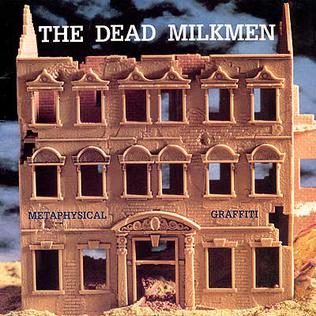
Metaphysical Graffiti is the fifth studio album by the Dead Milkmen, released by Enigma Records in 1990. The album title and cover art, the latter designed by the band's drummer Dean Clean, parody the 1975 album Physical Graffiti by Led Zeppelin. Two tracks appear on Death Rides a Pale Cow.

Haircut is the ninth studio album by American rock band George Thorogood and the Destroyers, released on July 27, 1993. The first single from the album was "Get a Haircut". The album peaked at No. 120 on the Billboard 200. The band supported the album with a North American tour.
Rigobert Bamundele, best known as Rigo Star, was a Congolese soukous guitarist and composer. He played with several major soukous and world music acts, including Papa Wemba's Viva La Musica, Bozi Boziana's Anti-Choc, Kanda Bongo Man, Koffi Olomide, Kékélé, Paul Simon, and Fally Ipupa. His name is mostly associated with Congolese female singer M'bilia Bel, with whom he collaborated almost exclusively throughout the 1990s. He also released a few solo works, including the 1998 album Attention! with Sam Mangwana on vocals. Star died on 26 October 2023, in Reims, France, at the age of 68.

Johnny Comes Marching Home is the second album by the American band the Del-Lords. It was released in 1986 on EMI America Records.
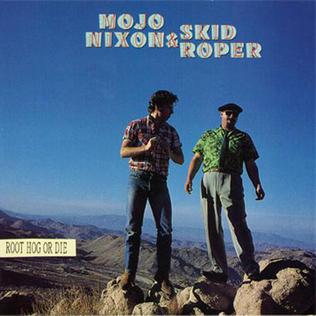
Root Hog or Die is an album by the American musicians Mojo Nixon and Skid Roper, released in 1989. It was the duo's final studio album. Nixon originally wanted to call it Bush Idiot Slime; he took "root hog or die" from Davy Crockett's autobiography. The duo supported the album with a North American tour. Root Hog or Die sold more than 50,000 copies in its first six months of release.

Zing Zong is an album by the Congolese musician Kanda Bongo Man, released in 1991. The album is dedicated to the memory of Soki Vangu and his brother Soki Dianzenza, who were in the earlier Zairean soukous band Orchestre Bella Bella. Both brothers died within a year of each other. "Freres Soki" is a tribute to them, and "Zing-Zong" is a reworking of a Bella Bella hit, "Houleux Houleux". Kanda supported the album with a North American tour.
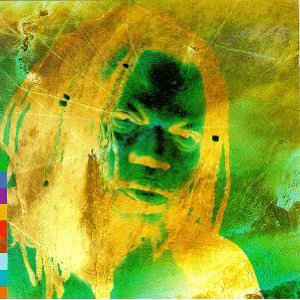
Songs for the Poor Man is the first studio album and second album overall by Tanzanian soukous musician Remmy Ongala and his band Orchestre Super Matimila, released in 1989 on Real World Records. The album follows Ongala's acclaimed appearances at the WOMAD Tour and WOMAD'S release of Naillia Mwana, a compilation of early music by Ongala, two events which gave Ongala international recognition. Songs for the Poor Man was recorded at the WOMAD-affiliated Real World Studios in Wiltshire over three days in May 1989 with production, engineering and mixing help from David Bottrill.
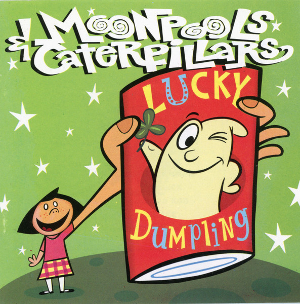
Lucky Dumpling is an album by the Filipino American band Moonpools & Caterpillars, released in 1995. The album's first single was "Hear". The band supported the album with a North American tour.

Galo Negro is an album by the Angolan Congolese musician Sam Mangwana, released in 1998. Mangwana deemed his sound "Congolese Rumba." Mangwana supported the album with a North American tour, accompanied by labelmate Ricardo Lemvo.
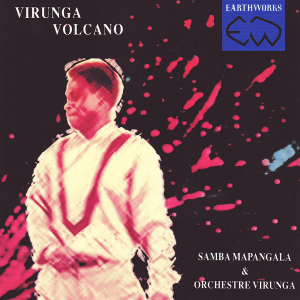
Virunga Volcano is an album by the Congolese musician Samba Mapangala, released in 1990. He is credited with his band, Orchestre Virunga. The album was first released, in Europe, in 1985. "Malako" was a hit in Africa, and is regarded as a perennial classic. The album was a breakthrough for Mapangala, and led to steady international touring.

Resistance Is Defence is an album by the South African musician Mzwakhe Mbuli. It was released in 1992. Some of its songs were banned from South African radio.

The Message is an album by the Guinean-born Canadian musician Alpha Yaya Diallo. It was independently released in Canada in 1998, with an international release in 1999. The Message won a Juno Award for "Best Global Album". Diallo supported the album with a Canadian tour.
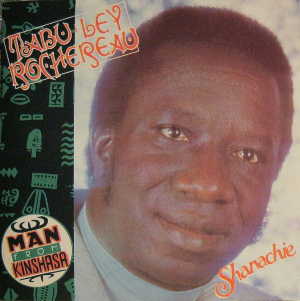
Man from Kinshasa is a compilation album by the Congolese musician Tabu Ley Rochereau. It was released in 1991. Rochereau supported the album with a North American tour.

















